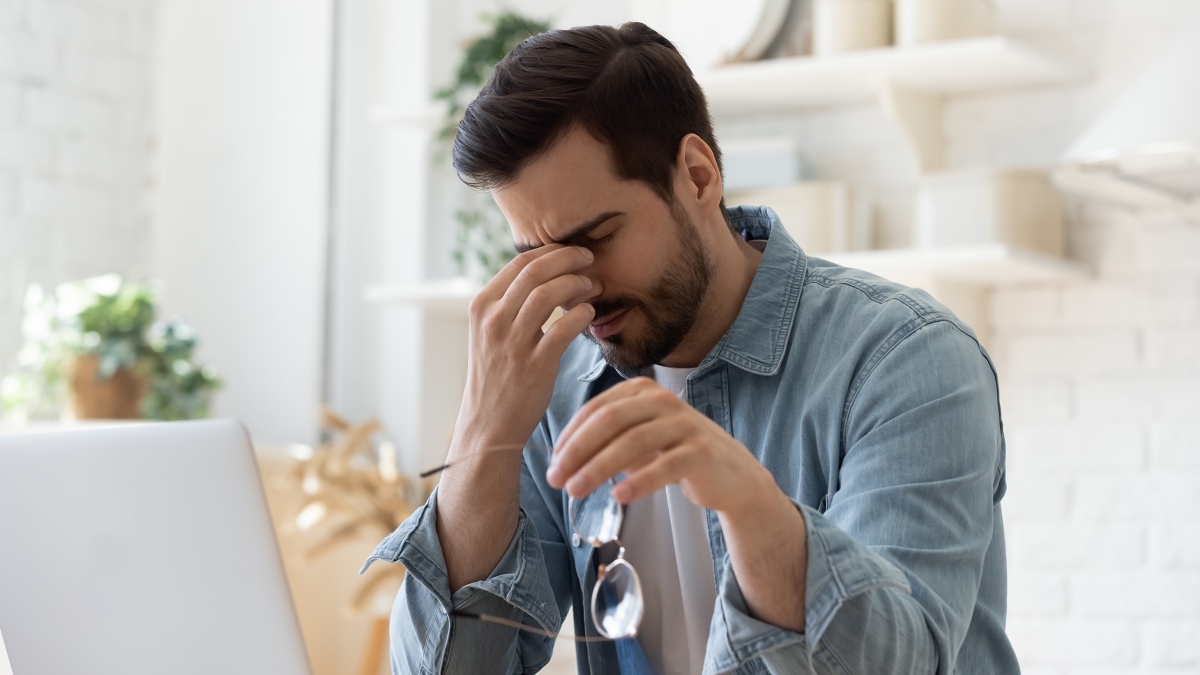Dry eyes can be more than just an annoying sensation—they can impact your daily life. At Seacoast Vision Care in Scarborough, Maine, we’re here to help you understand why your eyes might be feeling dry and what you can do about it. Dry eyes can happen for many reasons. Here are some common causes that might be affecting you:
Environmental factors
Living in a cold and windy place, such as Maine, can lead to dry eyes. Indoor heating during the winter months can also dry out the air, reducing the moisture levels that help keep your eyes comfortable. Similarly, spending a lot of time in air-conditioned environments during the summer can worsen dry eye symptoms. Using a humidifier can help relieve dry eye symptoms by adding moisture to the air.
Screen time
Many of us spend hours in front of screens—whether it’s a computer, smartphone, or TV. When we stare at screens, we tend to blink less often, which means our eyes aren’t getting the regular moisture they need. Taking regular breaks from screens (every 20 minutes) and focusing on an object at least 20 feet away will help reduce eye strain and dryness.
Age
As we age, our bodies produce fewer tears. This natural decrease in tear production can lead to dry eyes, particularly in people over the age of 50. Hormonal changes, especially in post-menopausal women, can also contribute to dry eye symptoms.
Medical conditions
Certain medical conditions can lead to dry eyes. These include autoimmune diseases like Sjögren’s syndrome, rheumatoid arthritis, and lupus. Conditions such as diabetes and thyroid disorders can also affect tear production and lead to dryness.
Medications
Many common medications can cause dry eyes as a side effect. These include antihistamines, decongestants, blood pressure medications, and antidepressants. If you think your medication might be causing your dry eyes, ask your healthcare provider about potential alternatives or methods to combat the dryness.
Contact lenses
Wearing contact lenses for extended periods can cause or worsen dry eyes. Contacts can absorb the moisture in your eyes, leaving them dry and irritated. Cleaning your lenses properly and using rewetting drops can help, but switching to glasses more frequently or trying a different brand or type of contact lens might be necessary.
When to see an eye doctor
If your dry eye symptoms persist despite home remedies or over-the-counter treatments, it’s time to see an eye doctor. Additionally, if you have severe symptoms such as eye pain, redness, or vision changes, don’t wait to seek treatment. Our dry eye specialists in Scarborough are here to provide personalized care and find the best solution for your dry eyes. We offer advanced treatments such as OptiLight IPL therapy and ZEST (Zocular Eyelid System Treatment) to help you improve your overall eye comfort and health. Schedule an appointment with us today and let us help you find relief.

